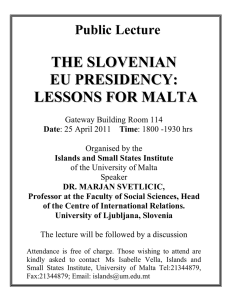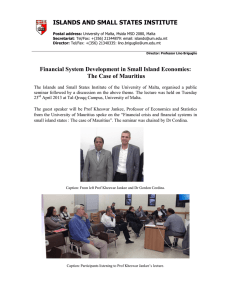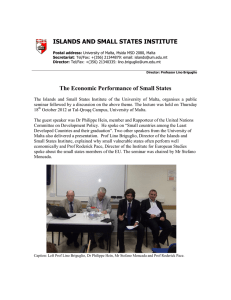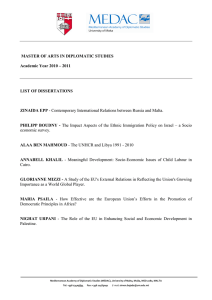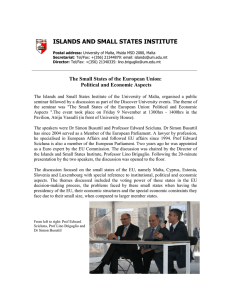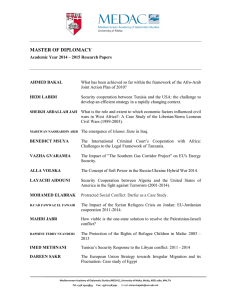W o rk sh
advertisement
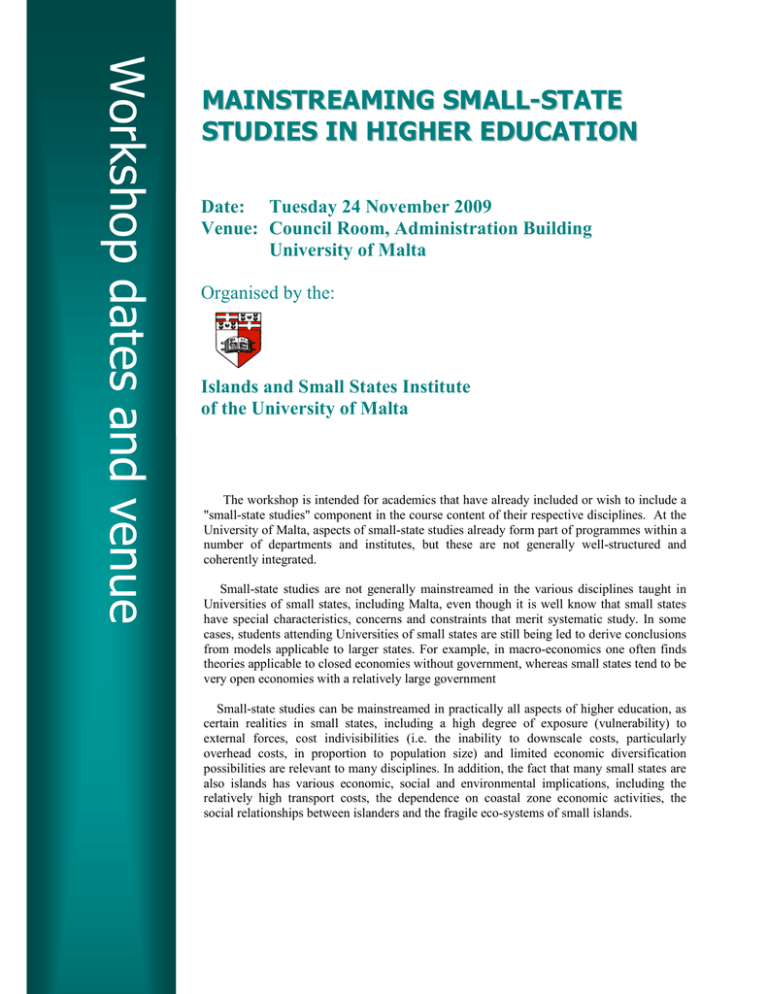
Workshop dates and venue MAINSTREAMING SMALL-STATE STUDIES IN HIGHER EDUCATION Date: Tuesday 24 November 2009 Venue: Council Room, Administration Building University of Malta Organised by the: Islands and Small States Institute of the University of Malta The workshop is intended for academics that have already included or wish to include a "small-state studies" component in the course content of their respective disciplines. At the University of Malta, aspects of small-state studies already form part of programmes within a number of departments and institutes, but these are not generally well-structured and coherently integrated. Small-state studies are not generally mainstreamed in the various disciplines taught in Universities of small states, including Malta, even though it is well know that small states have special characteristics, concerns and constraints that merit systematic study. In some cases, students attending Universities of small states are still being led to derive conclusions from models applicable to larger states. For example, in macro-economics one often finds theories applicable to closed economies without government, whereas small states tend to be very open economies with a relatively large government Small-state studies can be mainstreamed in practically all aspects of higher education, as certain realities in small states, including a high degree of exposure (vulnerability) to external forces, cost indivisibilities (i.e. the inability to downscale costs, particularly overhead costs, in proportion to population size) and limited economic diversification possibilities are relevant to many disciplines. In addition, the fact that many small states are also islands has various economic, social and environmental implications, including the relatively high transport costs, the dependence on coastal zone economic activities, the social relationships between islanders and the fragile eco-systems of small islands. Information for Participants OBJECTIVES The objectives of this workshop conference are to: • Provide a platform for those who wish to present a paper, including studies where particular disciplines are utilised to analyse small-state issues. • Propose ways as to how small-state studies can be mainstreamed in courses offered by Universities located in small states. • Explore possibilities for the launching of a journal on small-state issues. STRUCTURE The workshop will be structured in three main sessions. The first morning session (0900-1100) will deal with the Humanities, Social Studies and Education. The second morning session (11301330) will be dedicated to the sciences and the professions (Law, Medicine, Architecture, Engineering and others). The afternoon session (1430-1600) will consist of a panel discussion entitled “Mainstreaming Small-State Studies – The Way Forward”. The Workshop will be concluded (1630-1730) with a discussion on and the adoption of a final statement. PARTICIPANTS AND CALL FOR PAPERS The workshop is mainly intended for persons involved in higher education, particularly those working in small jurisdictions. Those interested in participating are requested to inform the Academic Coordinator by 30 October 2009. Prospective participants who intend to present a paper are invited to do so by first submitting an abstract of about 200 words to the Academic Coordinator (see below). Deadline for submission of the abstract is 30 October 2009. The full text of the paper, or a power-point presentation consisting of approximately 30 slides, is to be submitted to the Academic Coordinator of the Workshop by 14 November 2009. The papers/ presentations should focus on considerations relating to small country size and/or insularity (given that many small states are also islands). Typical issues that can be considered in the paper are “Is a small state (or a small island jurisdiction) constrained or advantaged in view of its small economic, population or territory size and its insularity” and “How can these constraints or advantages be integrated in the programme of study of a particular discipline?” WORKSHOP IS FREE OF CHARGE • Attendance at the conference is free of charge. • Participants can have lunch, at their own expense, at the Senior Common Room of the University. • Participants should make their own travel and accommodation arrangements. However the logistics coordinator will be able to assist in these matters. COORDINATION Academic Coordinator: Professor Lino Briguglio Islands and Small States Institute, University of Malta, Msida, Malta Tel: +356 2340 2732; Fax: +356 2134 4879; email: lino.briguglio@um.edu.mt Logistics Coordinator: Ms Isabelle Vella Islands and Small States Institute, University of Malta, Msida, Malta Tel: +356 2340 2117; Fax: +356 2134 4879; email: islands@um.edu.mt
